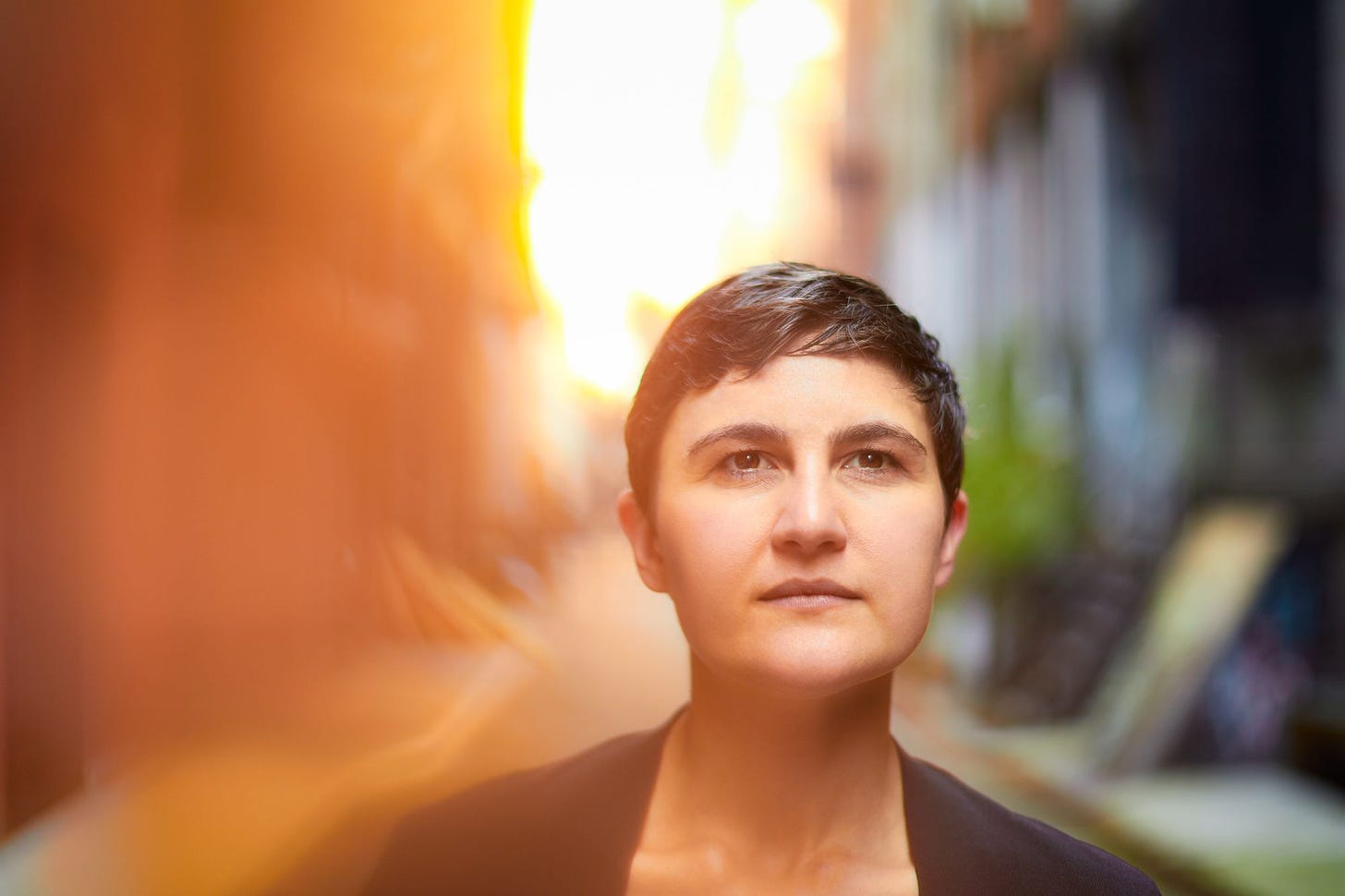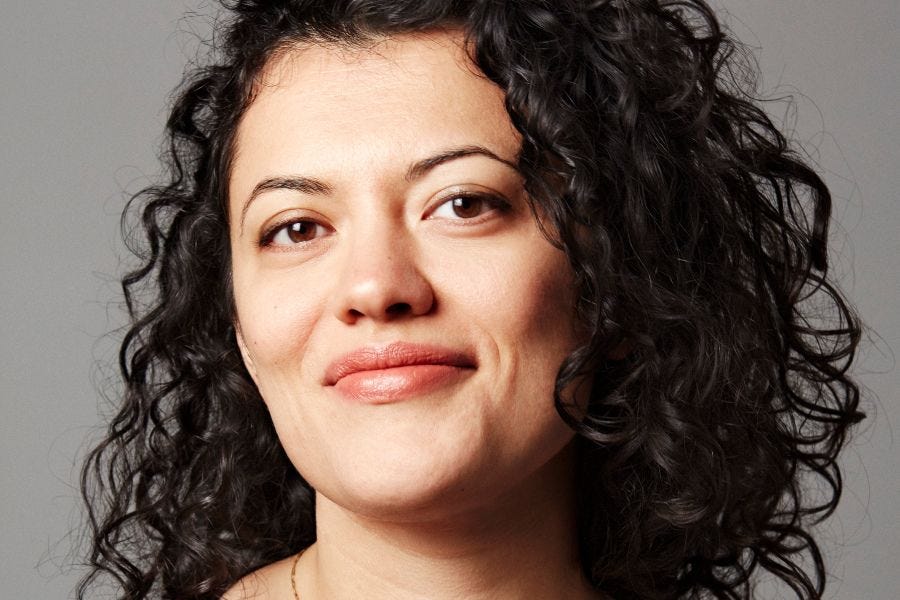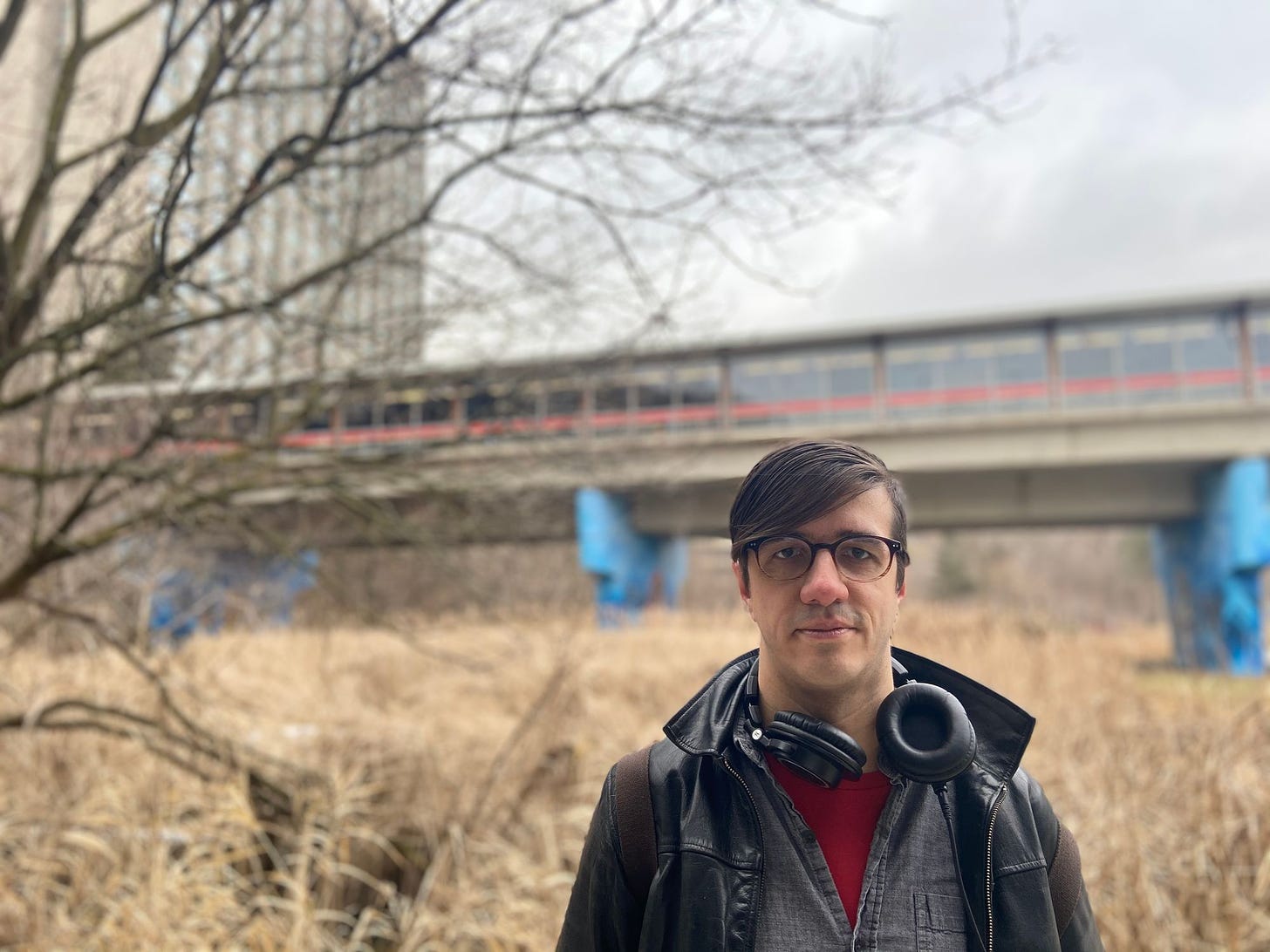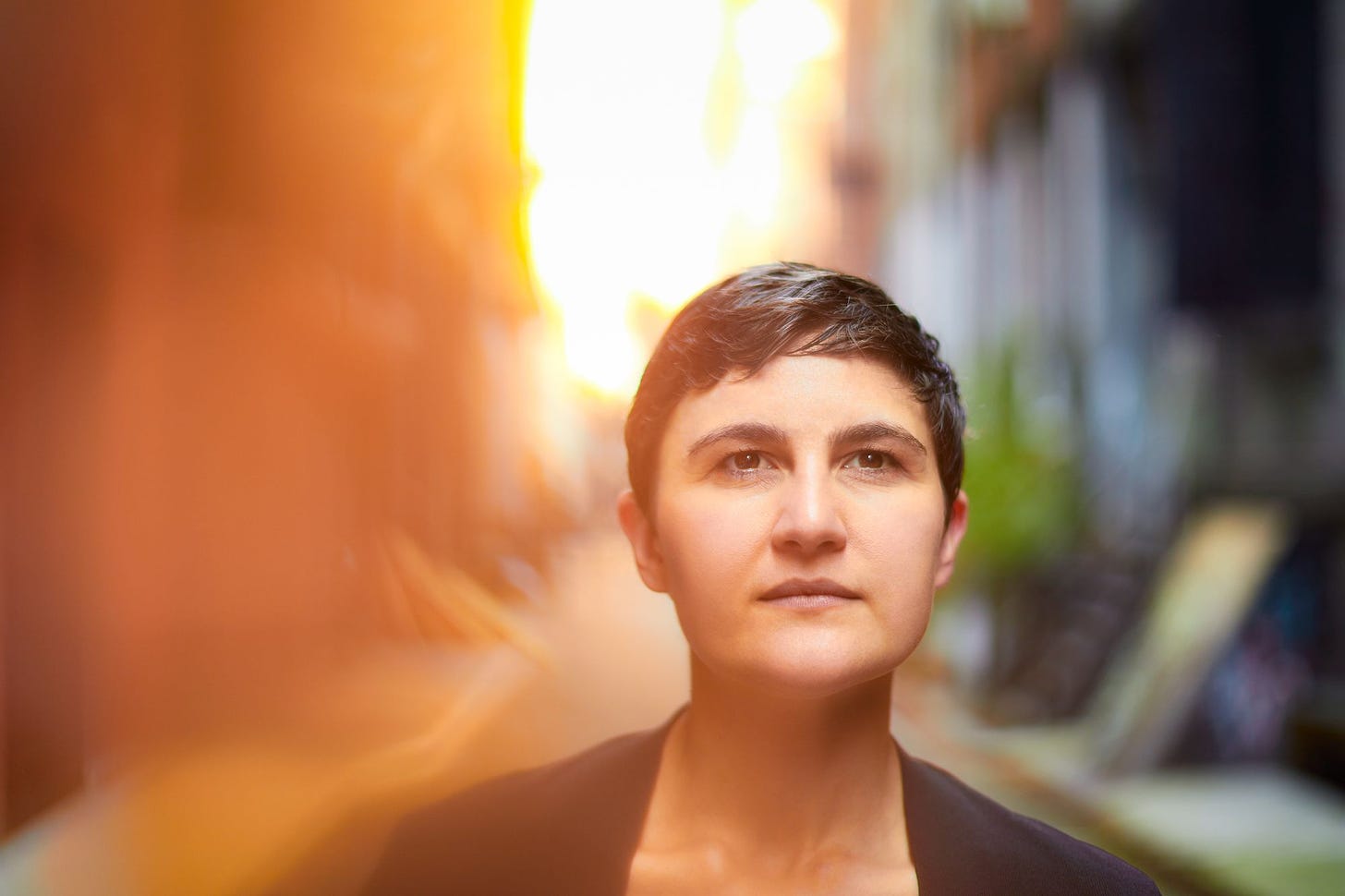Waxing lyrical.
Opera is calling, Lincoln Center has hired a new artistic director, and I've recorded my first vocal work for NPR… plus listings for the week ahead.

Prelude.
I started typing a random thought earlier this morning on Twitter, and then I stopped myself, because I realized it might serve me better here instead.
I listen to music almost continually when I'm not engaged in public or private conversation, and my musical choices tend to be… well, eclectic. But since late Sunday night, I've listened in sequence to recordings of Richard Wagner's Parsifal, Carlisle Floyd's Prince of Players, Kaija Saariaho's L'Amour de Loin, and The Pilgrim's Progress by Ralph Vaughan Williams. A new recording of Ludwig van Beethoven's Fidelio, with Lise Davidsen as Leonore, is playing as I write this.
I can't say what kicked off this sudden compulsion. Partly, I think, it's just because I spent time on Sunday shelving opera CDs I'd just brought out of storage. But I suspect it also means I'm ready to be swept away in an opera house, craving some good old-fashioned vissi d'arte. I'm jealous of colleagues catching in-person shows in theaters and ball parks and makeshift spaces around the world. I'm sorry to have blinked and missed an opportunity to hear Rossini's Il barbiere di Siviglia on Lincoln Center Plaza last week. I'm disappointed that I couldn't get to Bard College for the just-completed run of Chausson's Le Roi Arthus.
This, perhaps needless to say, is a tricky compulsion in New York City right now: not only because of the still very present global health crisis, but also because it's very hard to feel charitably disposed toward our local purveyor of repute, in light of all that we've seen during the last year. Still, the urge is real, and it's substantial.
I'm curious to know how you feel about the prospect of hitting the opera house: the if, the when, the whatever. (I'm not the only one pondering this: "We Want Your Thoughts on Coming to the Opera," the header on an email I just received from LA Opera asserts.) Drop me a line if you're so inclined.
Here is the news.
There's no bigger story for the New York City arts ecology and economy today than the news that Lincoln Center has appointed Shanta Thake, formerly associate artistic director of the Public Theater, as its new Ehrenkranz Artistic Director. Thake, 41, is closely associated with the performance venue Joe's Pub, which she managed for a decade. At Lincoln Center she succeeds Jane Moss, the estimable longtime leader who departed last August.
The news broke at noon on Tuesday, and three major outlets responded instantly, having been briefed in advance (as was I, full disclosure). Peter Marks in the Washington Post hit my Twitter feed first, followed by Justin Davidson for Vulture, and then Javier C. Hernández in The New York Times.
Reading the room, the NYT's Michael "Scoop" Cooper followed an initial tweet sharing the Hernández feature with a second tweet: "Lincoln Center officials told @HernandezJavier that they were still working out the future of Mostly Mozart." That question has been on my mind for some time now, especially with the Mostly Mozart Festival underway in drastically abbrieviated form this week. But, to be honest, I'm also asking myself exactly what it is that we're asking, and why.
You can download a PDF of Lincoln Center's press release here.
Bonus tracks.
• Thinking about Jane Moss and the transition outlined above made me remember a favorite story among the features I wrote during my seven-year stint as a New York Times freelancer: this 2010 article, in which Moss described what had led her to conceive of the White Light Festival, arguably her signature initiative.
• Synth composer-performer Laurel Halo has launched a newsletter via Substack. "With this format," she writes, "I am attempting to bypass the straits of social media: to share what’s happening with my work, as well as random thoughts and images, outside any algorithmic exploitation of aesthetics, bodies, self-expression." I do wish that she'd embraced a different platform – see here if you don't know why – but I'm glad to have this direct window into her creative process.
• I enjoyed this account from Piotr Orlov, in his Dada Strain newsletter, of a concert jointly presented by improvising bandleaders Angel Bat Dawid and jaimie branch, who converged upon a Greenpoint gallery last week for two nights of what's reported to have been life-altering music and celebration. Were I a regular reader of Orlov's bklyn sounds column in Bklyner, perhaps I'd not have missed these concerts myself. Lesson learned.
• Having written for the first time for NPR Music in June for their round-ups of favorite songs and albums from the first half of 2021, I've taken the next step and recorded my first bit of audio commentary for their Best Music of July podcast. My album of choice: Mayan Space Station by William Parker, a slow-burning trio date with guitarist Ava Mendoza and drummer Gerald Cleaver that would sound exactly right spun alongside Sonny Sharrock, 75 Dollar Bill, and Tinariwen. (I initially claimed elsewhere that this was my "NPR vocal debut," but no: turns out I'd talked about Pauline Oliveros with Lakshmi Singh on All Things Considered in 2016.)
Album of (last) week.
Nick Storring
Newfoundout
Mappa (CD, DL)
<a href="https://mappa.bandcamp.com/album/newfoundout">Newfoundout by Nick Storring</a>
I have no good excuse, save overextension, for missing Friday's "For the Record" update. Mostly I'm disappointed in myself now for failing to hail (except on Twitter) the arrival of a beguiling new album by Canadian cellist, composer, writer, and community organizer Nick Storring, Newfoundout, according to a succinct, smart note provided by Adam Badí Donoval on Bandcamp, is "an album where hyperrealism meets psychedelia, where strange dreams meet cinematic grandeur." I have to agree.
The reference to hyperrealism is meaningful: Donoval is citing the musical idiom of Noah Creshevsky, an ingenious New York-based electronic-music composer who died in December. (I had the solemn privilege of writing his New York Times obituary.) Storring dedicates "Dome," the first track on Newfoundout, to Creshevsky, who was an influence and a friend; what's fabulous is that Storring's music evokes the marvelous layers, juxtapositions, and energy of Creshevsky's, without ever resorting to mimickry.
Storring, in addition to being an invaluable fount of wisdom on the subject of contemporary Canadian music, is a composer of gifts so dizzyingly varied that his albums tend not to sound much alike. As a result, each tends to become my new favorite in turn. Newfoundout, a cornucopia of magical-realist percussion fantasies ("Dome," "Dome Extension," "Frood," "Vroomanton") and hallucinatory dreamscapes ("Khartum," "Silver Centre," "Newfoundout") – created, according to Storring's tally, with "acoustic and electromechanical instruments/treatments, and only the minimum of effects processing" – extends that trend.
So get this. Then get Endless Conjecture, and Gardens, and My Magic Dreams Have Lost Their Spell. Hell, get 'em all. But wait until this weekend, because that's when Bandcamp Friday resumes.
The Night After Night Watch.
All times listed are Eastern Standard Time.
PUBLIQuartet
Green-Wood Cemetery
500 25th St., Brooklyn
Wednesday, Aug. 4, Friday, Aug. 6, and Saturday, Aug. 7 at 6 & 7:30pm; $80
deathofclassical.com
This one I wrote up for The New Yorker. Quoting myself…
Terence Blanchard & E-Collective with Turtle Island String Quartet
Bryant Park
Between Fifth and Sixth Aves., and 40th and 42nd Sts., Midtown Manhattan
Friday, Aug. 6 at 7pm; free
Proof of vaccination or test results required
bryantpark.org
Presented by Carnegie Hall, trumpeter and composer Terence Blanchard hooks up his electric band E-Collective with the improvising string players of Turtle Island String Quartet. They'll show off the handsome charts and arrangements featured on Blanchard's new album, Absence, a Wayne Shorter homage due Aug. 27 on Blue Note—and, presumably, will stir up some buzz for Blanchard's opera Fire Shut Up in My Bones, set to open the new Metropolitan Opera season on Sept. 27.
String Orchestra of Brooklyn
Tenri Cultural Institute
43A W. 13th St., Greenwich Village
Friday, Aug. 6 at 8pm; $20
the-string-orchestra-of-brooklyn.square.site
Anne Leilehua Lanzilotti, a profoundly gifted violist, composer, organizer, and scholar, composed with eyes the color of time for a commission from the String Orchestra of Brooklyn for its annual String Theories festival in March 2020—which obviously never transpired. SOB players in lockdown recorded part of the fourth movement in April 2020; listen to the sinewy lament on Lanzilotti's website, and then catch the complete work's delayed premiere at Tenri, where Lanzilotti will open with ko'u inoa, a haunting bariolage meditation the Native Hawaiian artist based on the anthem "Hawai‘i Aloha."
Sergei Tcherepnin
Blank Forms
468 Grand Ave. #1D, Brooklyn
Saturday, Aug. 7 at 5pm; $20
Vaccination and masks required
blankforms.org
Descended from an extraordinary musical lineage, Sergei Tcherepnin is an artist and musician of individuality and distinction—"operating at the intersections of sound, sculpture and theater," according to his professional bio. Known for his work with analog synthesizers, his sound installations, and at least one event that involved vodka and an electrified music critic, he's featured here in the third in a series of solo performances at the intimate new performance space run by Blank Forms, a nomadic, increasingly global curatorial organization.






